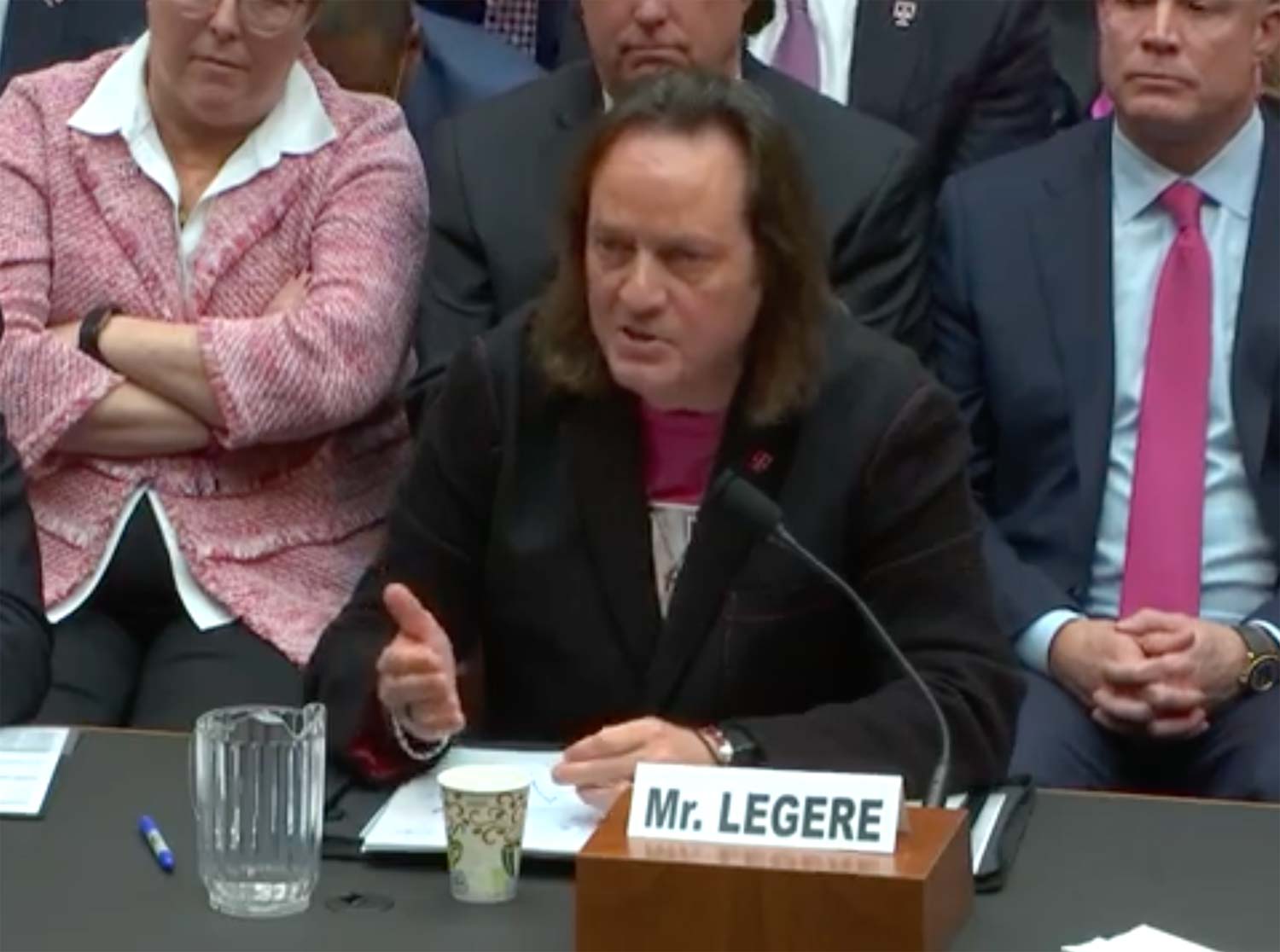Congress Grills T-Mobile, Sprint Over Proposed Merger
John Legere and Marcelo Claure made the case before Congress as to why T-Mobile and Sprint should be allowed to merge. But skeptics of the $26 billion deal remain.
Monthly cell phone bills won't go up and the wireless market will remain competitive if T-Mobile's merger with Sprint goes through, T-Mobile CEO John Legere told a congressional subcommittee today (Feb. 13). But some legislators expressed skepticism about claims that the proposed merger would improve wireless coverage in rural parts of the country.

Legere was joined by Sprint CEO Marcelo Claure along with other supporters and opponents of the proposed merger during a three-hour hearing before the House of Representatives' communications and technology subcommittee. Congress has no say in whether the T-Mobile/Sprint deal goes through — that falls to the Federal Communications Commission and the U.S. Department of Justice — but that's not stopping legislators from weighing in on the matter.
MORE: T-Mobile-Sprint Merger: All Your Questions Answered
Just yesterday, eight Democratic Senators — including four who have already announced plans to run for president in 2020 — sent letters to both the FCC and Justice Department arguing that the merger should be rejected. So today's hearing gave supporters and opponents the chance to publicly make their case for and against the $26 billion deal first announced last April.
For Legere, that meant talking up the benefits of what he called a "super-charged Uncarrier" that would create a faster, broader network that will also have the ability to expand into the broadband market, challenging cable operators.
"The combined company will continue the T-Mobile tradition of disrupting the wireless space," Legere told the congressional subcommittee. "But we won't stop there."
Last week, in a letter to the FCC, Legere promised that wireless rates for the combined company would remain the same or be better for three years after the merger goes through. He reiterated that claim in today's congressional testimony, even when pressed by Rep. Darren Soto (D-Fla.) to make that commitment a condition of the merger.
Sign up to get the BEST of Tom's Guide direct to your inbox.
Get instant access to breaking news, the hottest reviews, great deals and helpful tips.
"Our opponents are wrong when they claim the merger will lead to higher prices," Legere said. "In fact, the opposite is true."
Opponents of combining Sprint and T-Mobile fear that commitment won't extend to mobile virtual network operators who pay those two carriers to use their cellular towers to provide low-cost coverage. There's also the concern that combining two of the Big Four wireless providers will mean a less competitive market, adversely affecting consumers.
"Post-merger, the market will not be competitive enough to discipline the three remaining carriers" from raising prices, said Phillip Berenbroick, senior policy counsel for Public Knowledge, a public-interest group focused on competition in the digital market.
Claure countered that the market is not very competitive now, contending that Verizon and AT&T essentially enjoy a duopoly over the wireless industry that has prevented T-Mobile and Sprint from more aggressively investing in their own networks. That sentiment was echoed by Rep. Anna Eshoo (D.-Calif.), who's come out in support of green-lighting the merger.
Both Legere and Claure argue that the merger will boost their combined company's effort to build up a 5G network. But representatives on the congressional subcommittee repeatedly returned to the impact the merger will have on rural areas, which are underserved by current wireless networks. "They're still going to be at the low end of the pole," Rep. Tom O'Halleran (D-Ariz.) said.
That's certainly the position of the Rural Wireless Association, which opposes the merger. Carri Bennet, general counsel for the trade group, blasted T-Mobile's track record on roaming and call completion for rural customers and expressed concerns about what a merged company would mean for the MVNOs that rely on other carriers' networks to provide wireless coverage.
Another hot topic during today's hearing concerned jobs. Legere says the combined company "will be jobs-positive from day one and going forward," with 11,000 more employees by 2024.
Chris Shelton, president of the Communication Workers of Amercia, doubts that math, telling Congress that the merger would cost 30,000 Americans their jobs, with 25,000 of those coming from duplicative retail outlets.
"Take away competition, and the remaining companies can throttle down on employee concentration while jacking up prices on consumers," Shelton said.
Philip Michaels is a Managing Editor at Tom's Guide. He's been covering personal technology since 1999 and was in the building when Steve Jobs showed off the iPhone for the first time. He's been evaluating smartphones since that first iPhone debuted in 2007, and he's been following phone carriers and smartphone plans since 2015. He has strong opinions about Apple, the Oakland Athletics, old movies and proper butchery techniques. Follow him at @PhilipMichaels.

